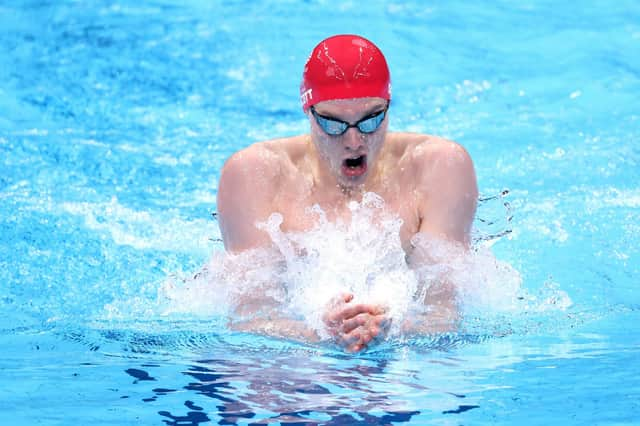Letting every Scottish child learn to swim would be real Olympic gold – Brian Wilson


Since neither will happen, it is as well to concentrate on the positives of the Olympics and why, for all the challenges, it is welcome they are going ahead with their spirit shared in every corner of the world, except North Korea.
I have heard a few miserabilists knocking the Games because they promote elite achievement. One earnest academic was on radio telling us it would be far better to spend money on countering obesity. Exactly why the two should be posited as alternatives, rather than complementary, remained unclear.
Advertisement
Hide AdAdvertisement
Hide AdThe promotion of “elite” achievement, backed up by National Lottery funding, was a Labour policy of the late 1990s and quite right too. We had just as much obesity then but only a pair of rowers had won a gold medal at the 1996 Olympics in Atlanta.
Clearly, there was a huge pool of unfulfilled talent – individuals from all backgrounds who were capable of competing with the world’s best if given the opportunity. In every case, that still depended on individual talents and hard work. The duty of the state was to provide the opportunity.
That takes us back to a fundamental political principle. There are huge reservoirs of talent in every field of activity which will never be discovered because the pathways do not exist. The chasm which separates advantaged and disadvantaged is not just socially unjust; it is also profoundly self-harming for society.
One joy of Olympic successes in recent days has been to note the classlessness of accents. Olympians used to be disproportionately posh boys and girls, probably from private school backgrounds. Access to elite facilities and coaching for all whose exceptional talents have been spotted has transformed that.
Another great thing about the Olympics is that they give minority sports their place in the limelight and surely draw in many more participants at all levels. For example, anyone who doubted skate-boarding as an Olympic event only had to watch its exponents to recognise the fabulous skills and athleticism it requires.
The same principle applies right down the pyramid. Create access and kids will discover what they can achieve. Deny access and they will never know. It applies to sport, to education, to music… to everything. Where there is in-built inequality, a minority will overcome but far more become inter-generational victims.
There was pathos in the contrast between Duncan Scott’s achievements in the Tokyo pool – the product of a superb process of supporting early talent to its elite destination – and the statistic that 40 per cent of Scottish children leave primary school unable to swim.
In deprived areas, that rises to 60 per cent. The same 60 per cent will be less likely to discover other talents because they don’t have the money, the peer pressure to achieve, the access to facilities, and so on.
Advertisement
Hide AdAdvertisement
Hide AdThis is what levelling-up should be about – a constant drive for equalisation of opportunity. The only way to do it is through collective provision and every time a swimming-pool or a library or an outdoor centre or a skateboard park shuts because council budgets have been slashed, the process goes into reverse.
I have no idea why, in Scotland, swimming is not a compulsory part of the primary curriculum, as it is in England and Wales. So why don’t we draw at least one inspiration from the past week’s events, both tragic and glorious, by making an absolute commitment that every Scottish school child will have the statutory opportunity to learn to swim before the next Olympics?
That kind of outcome should be entirely feasible with a little political will but requires continuity of purpose and a determination to carry it through. Just this once, can we have a commitment that is eminently deliverable and would make a real, lasting difference to Scottish life?
Who knows how many Duncan Scotts it would create or how many lives would be saved?
A message from the Editor:
Thank you for reading this article. We're more reliant on your support than ever as the shift in consumer habits brought about by coronavirus impacts our advertisers.
If you haven't already, please consider supporting our trusted, fact-checked journalism by taking out a digital subscription.
Comments
Want to join the conversation? Please or to comment on this article.
